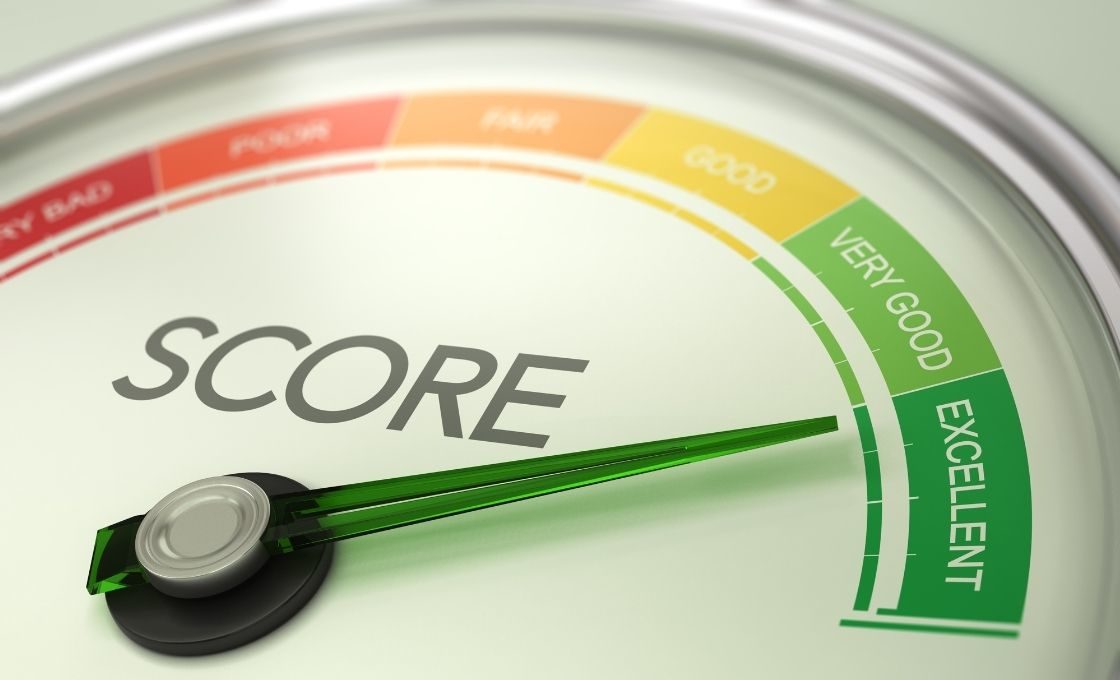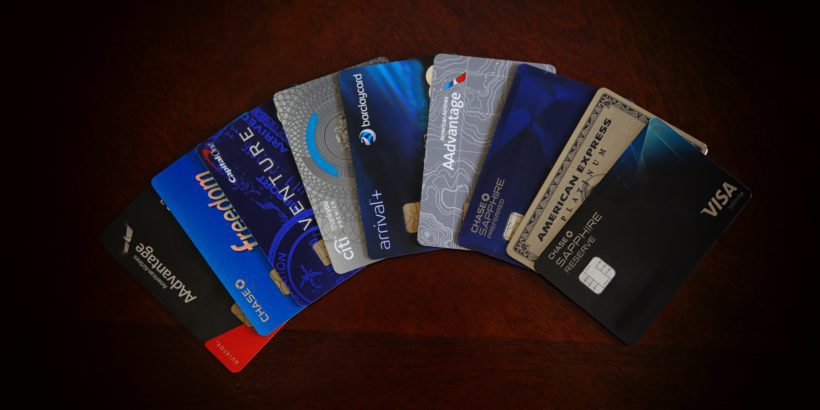A lot of people have had issues with unemployment recently due to the pandemic and are curious if they are still eligible to apply for a credit card. Being in need of credit and not having a job can be pretty stressful but there may be some good news if you are in that situation.
Can you get a credit card with no job?
Yes, you can apply and get approved for a credit card even if you have no job. However, there are some limitations you need to know about and below you can find a lot of tips on how to best go about this process.
Tip: Check out the free app WalletFlo so that you can optimize your credit card spend by seeing the best card to use! You can also track credits, annual fees, and get notifications when you’re eligible for the best cards!
What actually matters for approval
First, it’s good to have a quick reminder on what actually matters when applying for a credit card. This will help you put your current employment status into the proper perspective.
Credit score and report
The most important factor for getting approved for a credit card is your credit score and credit report.
Each credit card will have different eligibility requirements and will require a specific credit score range so the first step of getting approved for a card without a job is to apply for a card that will accept your credit score.
And along with your credit score, you want to have a good credit report which means that you are not carrying a lot of debt, you have established credit history, and you have made payments on-time.
Even if you are CEO of a successful company, you would still be limited by your credit score and credit report since those are the most relevant factors for getting approved for a credit card.
And if you are a borderline candidate in terms of your credit score, selecting unemployed could be a knock against your approval odds.

Income
Most credit card applications will ask you to input your income on the application page. But there are some things you should know about the importance of your income.
First, the banks are likely more interested in your income source type than who your employer us.
This is why some applications like those from Chase only ask about the “source of your income” (employed, self-employed, other, etc.)
The second thing to remember is that income is still not nearly as important as your credit score.
You could be making over $200,000 a year but if your credit score is in the 500s, you will still struggle to get approved for a lot of credit cards.
Also, if you have a huge amount of debt then your high income may not help you out as much. As CBS reports, these credit systems have models that can estimate your income based on your monthly payments. And that could help give them a sense of your disposable income which could be used for credit card payments.
For credit card applications, I’d argue income is more relevant when deciding your credit line and your eligibility for premium cards, such as the American Express Platinum Card.
While your income may not be the most important factor, it does help to have some stated income so that an issuer knows that you have a way to pay off your bills.
If you truly have no income, then that could be a major problem for a lot of credit card issuers, so you should seriously consider including accessible income which I will talk about below.
Related: Does Income Affect Your Credit Score?
Mortgage or rent
A lot of credit card applications will also ask you to input your monthly mortgage or rent payment or at least indicate if you are renting or owning.
This factor is related to your income/employment because it determines roughly how much disposable income you may have to use to pay off your credit card bill.
If you have zero stated income, marked your employment status as unemployed but have included your rent payment, you could run into trouble because your bank may have serious doubts about your ability to pay off bills.
I have never had a credit card issuer request verification for my rent payment so this is typically something that is not verified by banks.
Bank accounts
Some banks will also ask you to select whether or not you have a bank account such as a checking or savings. It’s not clear how much weight these factors are given in the approval process.
Verification process
Employment checks
Some credit card applications will not ask you to supply an employer so there is no need to fret about a bank calling up your boss.
However, other banks may ask you to include your employer’s name and they might even ask you to include a phone number.
Something that might surprise you is that it is rare for a bank to perform an employment check.
I’ve opened somewhere around 40+ credit cards and I have never had a bank contact an employer to verify my employment.
I also know a lot of people who have a ton of credit cards and I’ve never heard of a bank verifying their employment.
I’m not saying that it will never happen (I’m sure it has) but the odds of a credit card issuer verifying your employment status by calling up your employer are probably very low.
In some cases, your credit report might reflect your current and past employers so banks sometimes have a glimpse into your employment history.
According to PocketSense, “this employment history provided on your report is supplied by lenders when they report the information from your credit application.”
Note: It is possible that if you fall behind on your payments that a credit card issuer could contact your employer and inquire about your employment status so keep that in mind.
Verifying income
Just like employment, it is rare to have to verify your income on a credit card application.
But that doesn’t mean that some banks won’t require it. In rare cases, you may have to supply tax documents or perhaps pay stubs to validate your stated income.
Also, in other cases you could be subject to a financial review and the bank may want you to support your income via official tax documents.
But in the majority of cases banks will accept your self-verified income.
Accessible income
If you are 21 years or older, you can claim any income that you have reasonable access to.
Typically, “reasonable access” means income that is recurring to you or income that is found in a bank account that you have access to.
Examples of this would be a parent that pays $2,000 a month for your expenses. In that case, you could claim $24,000 of annual income. Another example would be if you had access to a bank account that your parents deposit $5,000 to every month. You could argue that you’re accessible income in that scenario is $60,000 a year.
Accessible income also includes income from things like interest or dividends, investments, retirement, Social Security benefits, and public assistance.
So be sure that if you do not currently have a job but you have access to other income you include that income when stating your annual income on a credit card application page.
Alternatives
Students
Banks know that students are not always rolling in the dough.
For this reason, the income requirements may be less stringent for a student credit card. This will also likely mean that you will not have access to a large credit line with a student credit card but at least you will be able to have some credit and establish your credit history.
According to the Balance, you can boost your approval odds by including income that is deposited into an individual or shared bank account with your name on it. And if you are at least 21 years old, you can also include income if it is regularly used to pay for your expenses (as discussed above).
The other major question is what about financial aid? Not every bank provides guidance on this and it varies but a rule of thumb is that you can use certain types of financial aid as income that are left over after covering your education expenses such as tuition.
Some banks say applicants cannot use student loans as income, but again, if you are using the proceeds for living expenses you at least have an argument that it should be considered income.
Secured credit card
If you are having financial difficulties and/or have a bad credit score, you might want to consider a secured credit card.
This could prove to be difficult because most secured credit cards require you to put down a deposit and if you don’t have a job you might not have money to do that.
You could try to simply go for the smallest required deposit which could be something like $100 and then build up your credit history that way. Just beware of fees because many secured credit cards force you to pay a lot of fees such as activation fees or monthly maintenance fees.
Cosigner
Most credit cards that I have had or been interested in do not allow cosigners but there are some credit cards that do.
A cosigner will be responsible for the payment if you cannot make the payment so this would need to be someone that you have a lot of trust in. If you apply with them, you should be able to list their income on the application.
Authorized user
If you have no job and no access to income, then you will likely struggle to get approved for a great credit card.
In that case, your best move might be to ask someone that you trust and that trusts you enough to add you as an authorized user.
The individual adding you as an authorized user will remain responsible for the payment.
If they do not responsibly manage the card and max it out or get negative payments, it’s possible that those factors will damage your credit score, so that is why this route requires a lot of trust.
But if you can find the right person, this will help you build up some credit and allow you to get experience with dealing with a credit card.
FAQ
Typically, banks do not take the extra step to verify your employment status when applying for a credit card.
Most banks do not verify your income on credit card applications but it can happen. In those cases, be prepared to supply IRS documents to verify your income.
Final word
It’s entirely possible to get approved for a credit card when you are unemployed. However, you still may need a source of income so that banks can feel good about your ability to pay off a credit card bill.
If you do not have a job, consider including your “accessible income” to boost your approval odds. And if that is not possible, consider alternatives like getting added as an authorized user or opening up a secured credit card.
Daniel Gillaspia is the Founder of UponArriving.com and the credit card app, WalletFlo. He is a former attorney turned travel expert covering destinations along with TSA, airline, and hotel policies. Since 2014, his content has been featured in publications such as National Geographic, Smithsonian Magazine, and CNBC. Read my bio.

